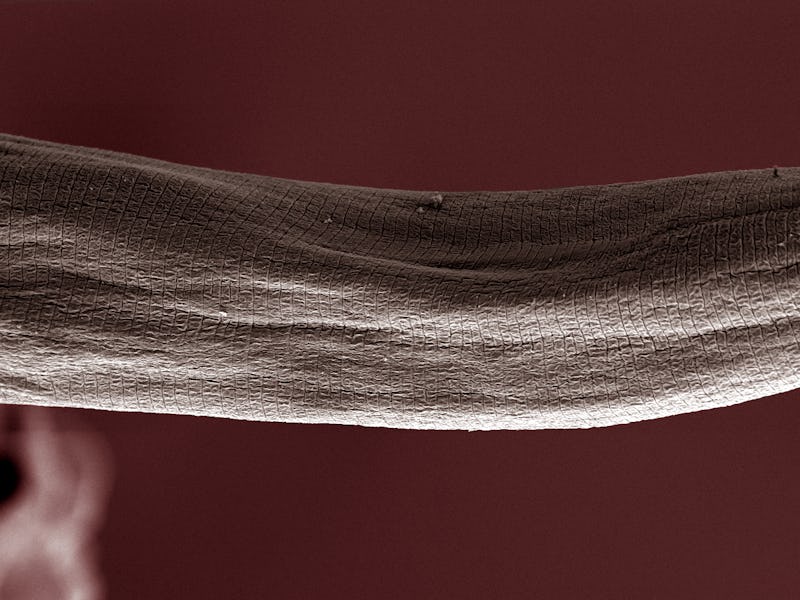The Iberian Peninsula juts out of Europe’s southwestern tip, where the strong Spanish sun beats down on the mountaintops. The soil there is inhospitable and dry, and the animals that live there must adapt to live in their arid homes. Scientists have just discovered a new species of worm that seems to have developed a particularly strange coping mechanism: These worms don’t have dicks.
Yes, most worms have penises — technically known as “copulatory organs” — but these ones don’t, researchers from the University of Jaén report in the journal Zootaxa. The microscopic species, named Myolaimus ibericus because they’re the first nematodes to have ever been found on the Iberian Peninsula, range from 0.5 and 0.8 nanometers in length. For scale, a human hair is about 80,000 to 100,000 nanometers wide. These nematodes are microscopic and require extra-strong magnification to be examined. But no amount of magnification will reveal their dicks, because they don’t exist.
The Iberian Peninsula can be hot and very dry.
Normally, when nematodes reproduce they use accessory genital structures known as “spicules,” which are “equivalent to the penis of other animals,” according to a statement on the paper from the Spanish Scientific News Service. Spicules are used to open up the vulva of female worms and, in some species, act as a canal for sperm to travel through. But Myolaimus ibericus, which the scientists dug up in compost from an orchard in Spain’s Puente de la Sierra, has no spicules, as far as the researchers can tell. How, then, does it reproduce?
The nematode C. elegans has "spicules," which have an analogous function to the penis.
In the paper, the researchers explain that the strange biology of the worm, which has adapted to its environment, allows it to transfer sperm in an unconventional way. These worms are unique in that they hold on to their cuticles — their thick, outer “skin” — rather than shedding them when they move, like other worms do. “This second skin protects them and could prevent them becoming dehydrated when soil becomes dry, thus making them more resistant to the summer months,” Joaquín Abolafia, a scientist at the University of Jaén’s department of Animal Biology and study co-author, said in a statement. This skin also forms a sac on the female’s vulva, which the male worm pumps its sperm into instead of using spicules, the researchers explain.
As if that wasn’t strange enough, the nematode’s sperm is covered in “pseudopods” — that is, extensions that allow individual sperm cells to pull themselves across a surface — and the female’s eggs are covered in small spines.
This is a very recent discovery, and many questions remain. Still, perhaps the dickless plight of Myolaimus ibericus isn’t as dire as it seems to genital-obsessed humans. After all, in biology, “copulation” is nothing more than the transfer of sperm. If Myolaimus ibericus has evolved to do that without the use of a penis — like sharks, spiders, and birds — does it really have a problem? Abolafia acknowledged the peculiarity of his discovery, calling it a “strange species with unusual biology,” but chose to praise its usefulness rather than condemn its shortcomings. “These small animals serve as bioindicators of soil quality, as well as indicators of the presence of waste (especially faecal), of the existence of desertification processes and, ultimately, of climate change.”
